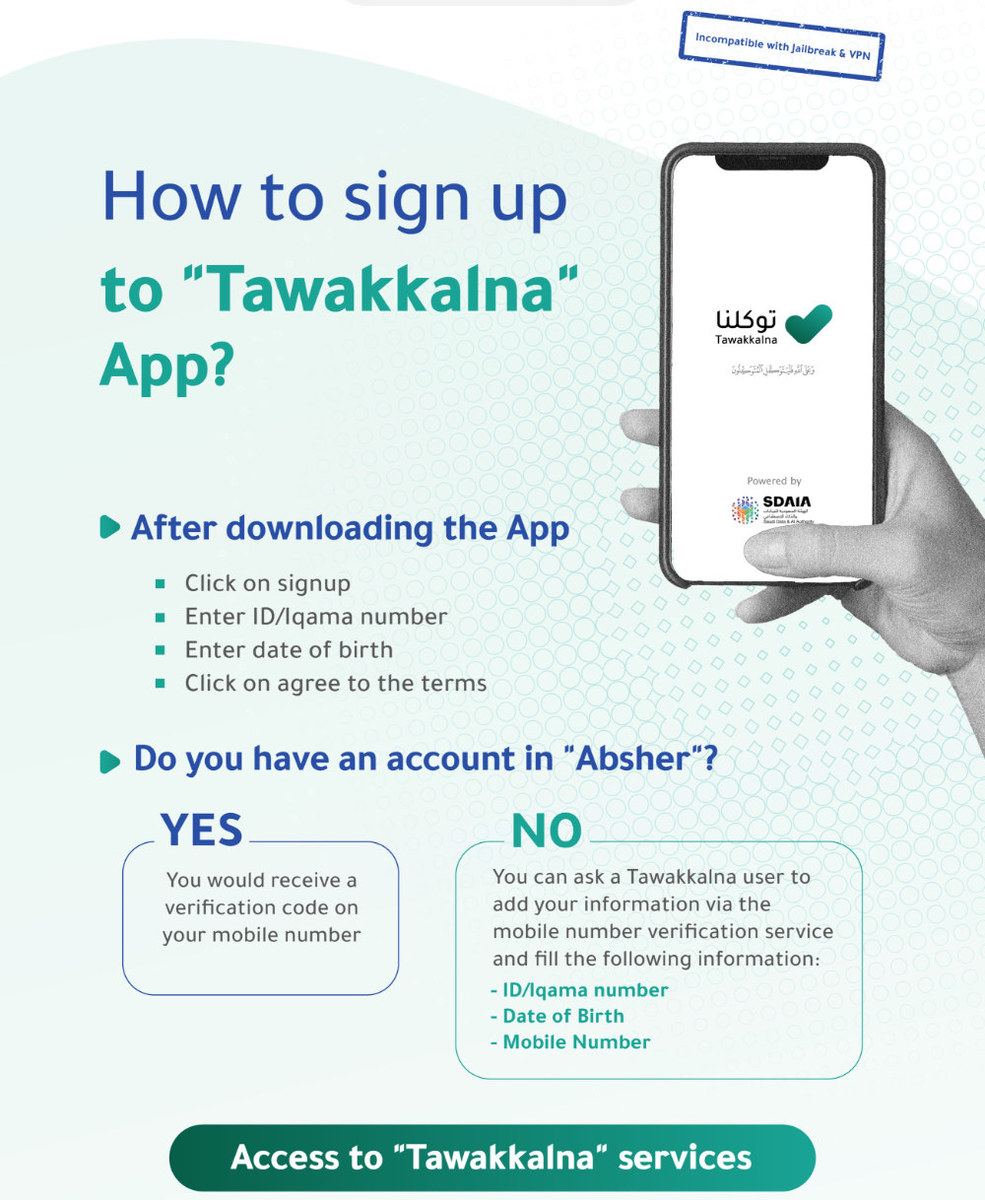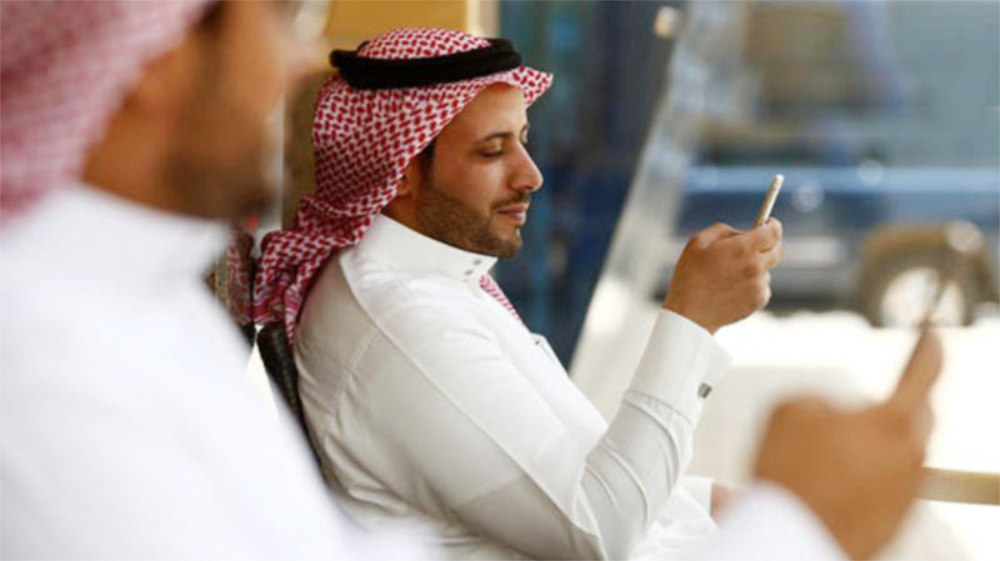DHAHRAN: The COVID-19 pandemic has helped Saudi Arabia become one of the most tech-savvy countries. For the past two years, you couldn’t leave your home without two main essentials: Your mask and your smartphone. Forget your bulky wallet or potentially forgetting to bring one of your IDs; all you need now could easily fit into your pocket.
FASTFACTS
• Absher, perhaps the mother of all the apps, was created in 2015 as an umbrella to connect individuals and businesses to government services provided in the Kingdom.
• Launched in 2020, Tawakkalna app aims help keep track of curfews and to book timed slots for individuals to exercise or grocery shop.
• During the height of the COVID-19 pandemic, citizens and residents alike constantly refreshed their Sehhaty app to book their vaccination appointment, and later, the booster shot.
• Being the land of the Two Holy Mosques, authorities launched a mobile app, aptly named Eatmarna, in early 2021 to support the transition back to allowing worshippers to congregate.
I recently returned from New York City, arguably one of the most “time is money” places in the US. While roaming the streets of Manhattan, what struck me was that everyone took out flimsy pieces of paper to show proof of vaccination, a rule imposed for indoor dining at restaurants. While everyone scrambled to dig into their bags to take out that piece of paper, I quickly took out my phone and showed them my Tawakkalna app, where the dates of my vaccination were clearly visible on the screen. Every barista I talked to told me how impressed they were with the “Saudi app,” which they said was among one of the best they’d seen.

(Twitter: @TawakkalnaApp)
Saudi Arabia found a way to be eco-friendly by being paperless and efficient by grouping together all necessary documents in one place. The US, the home of Google, Facebook or Meta, and Hollywood, have not yet found a way to uniformly regulate what many call a health passport, much less any of the other functions. In this area, Saudi Arabia seemed more advanced than First World countries.
When Saudi Arabia introduced the Tawakkalna app in 2020, it was meant to help keep track of curfews and to book timed slots for individuals to exercise or grocery shop.
In Arabic, the word “tawakkal” describes the Islamic concept of “trusting in God’s plan.” Since the beta version of the app launched, it has broadened in scope and combined various government services into one place as the Kingdom pushed to digitalize its public sector. Users can access services for health, education, Hajj and Umrah, for everything driving-related, for insurance, passports, in addition to other items, directly within the app. Now your most important tool is your finger. It has become a way of life.
HIGHLIGHT
Saudi Arabia found a way to be eco-friendly by being paperless and efficient by grouping together all necessary documents in one place. The US, the home of Google, Facebook or Meta, and Hollywood, have not yet found a way to uniformly regulate what many call a health passport, much less any of the other functions. In this area, Saudi Arabia seemed more advanced than First-World countries.
“More than 20 million people, out of a population of roughly 35 million, have downloaded the app,” according to the Saudi Press Agency’s latest stats. That number will likely keep growing.
Abdulaziz Al-Salman, a talent management professional based in Riyadh, thinks that apps such as Tawakkalna are a natural evolution in how the Kingdom is easing into modern life.
“Being wired is a part of life right now. If I’m here in Saudi and I need to go anywhere, I’m stuck — I have to make sure that I have my phone on me. We are so dependent on them. It would be a nightmare if you went out and you figured out that you forgot your phone or it had low battery,” Al-Salman told Arab News.
Sarah Sebai, a doctor in Jeddah, grew up at a time when everything was offline, but gradually became more and more connected.
NUMBER
20m
More than 20 million people out of a population of about 35 million have downloaded the Tawakkalna app, according to the Saudi Press Agency’s latest statistics.
“As a millennial, I feel like I’ve gone through all the phases; from not having this amount to technology and just dial-up to a one-stop-shop app. Everything is in there — from the countries you traveled to, to the kids you have. I have no idea how I lived all my life without this,” Sebai told Arab News.
As a doctor, she feels the Tawakkalna app has opened up some unexpected doors and vital conversations.
“Now you are able to donate organs on the app — it’s really beneficial to have this. The idea of donating organs, especially when someone is on ventilation or life support, the idea of doing that in a culture like Saudi is not easy,” Sebai said.
Even as a mother, Sebai is not concerned about privacy or the constant tracking while using the app, since it is encrypted. She feels smartphones are now almost too important — that every resident could not afford to not get one.
“The average smartphone price point is still a burden for some workers since each and every member of the family has to have one. My maid didn’t have one and we had to get her one. One of the things that happens is that if the app, for any reason, does not work, nobody can help you. You’re stuck. If you’re at the airport and you need to show them something and the phone is off-service and you can’t get the verification code, that’s it — game over. Everyone should have a smartphone at this point. It’s not a luxury anymore, it’s a necessity,” she said.
There are a few other notable apps that have contributed to how well Saudis have adjusted to life during the pandemic — and beyond.
Absher, perhaps the mother of all the apps, was created in 2015 as an umbrella to connect individuals and businesses to government services provided in the Kingdom.
When the Saudi Ministry of Interior launched it, it instantly became the leading platform for e-services, which included three divisions: Absher for individuals, Absher for business and Absher for government.
The ministry recently announced that in 2021 the platform served 23 million users who carried out more than 85 million operations. Last year, Absher contributed to raising the quality of life of citizens, residents and visitors by facilitating access to more than 330 services and linking them to more than 80 government and private entities.
During the height of the COVID-19 pandemic, citizens and residents alike constantly refreshed their Sehhaty app to book their vaccination appointment, and later, the booster shot. It also became a useful place to check all health-related data, such as scheduling medical appointments, keeping track of prescribed medications and checking the status of their COVID-19 test.
Being the land of the Two Holy Mosques, the Ministry of Hajj and Umrah launched a separate mobile app, aptly named Eatmarna, in early 2021 to support the transition back to allowing worshippers to congregate.
Pilgrims can now book appointments to visit the holy sites and request their timed slots to pray in the Grand Mosque and the Noble Rawdah.
All of the mentioned apps have one thing in common: They are linked to Tawakkalna, which became the most useful app to download in the Kingdom. You can open a bank account, pay any fines and update your ID in one place.
In March 2021, Tawakkalna upgraded its services to accommodate expats without legal status by allowing residents to download the app without first creating an Absher account. For a country that started off reluctant to tap into dial-up internet, mostly on shared family computers, Saudi Arabia has advanced so rapidly that now almost every single person has to have a smartphone to live here.














